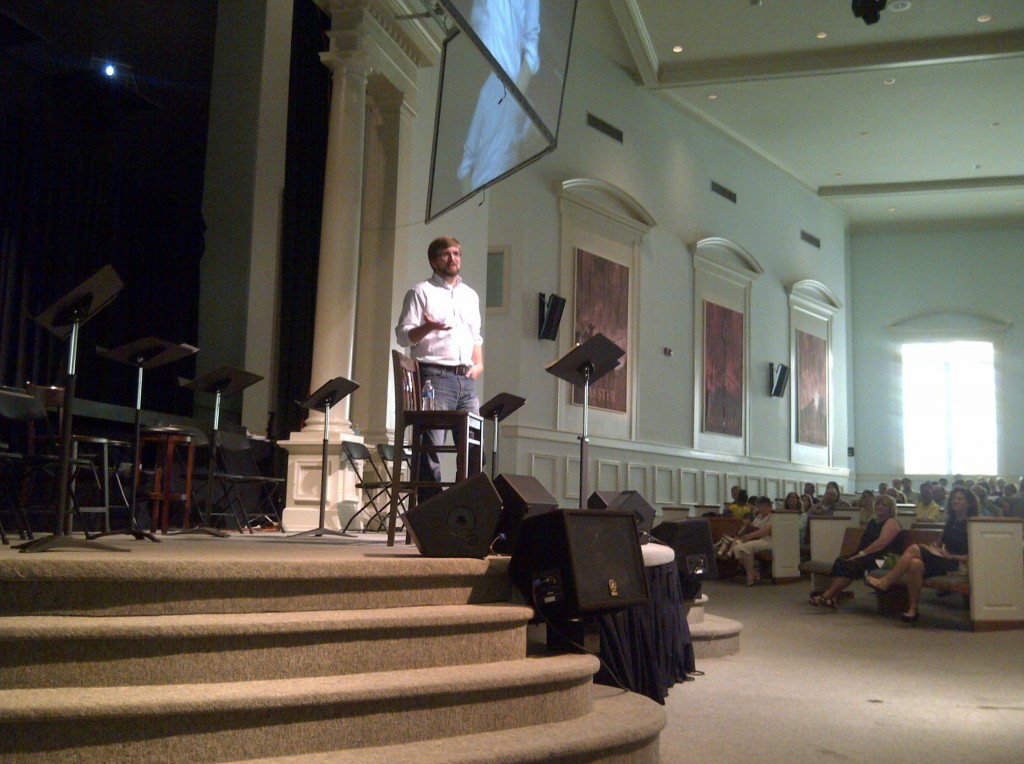A friend posted this on their Facebook profile today, and I found it incredibly funny and true. Enjoy
11 Step Program for those thinking of having kids
Lesson 1
1. Go to the grocery store.
2. Arrange to have your salary paid directly to their head office.
3. Go home.
4. Pick up the paper.
5. Read it for the last time.
Lesson 2
Before you finally go ahead and have children, find a couple who already are parents and berate them about their…
1. Methods of discipline.
2. Lack of patience.
3. Appallingly low tolerance levels.
4. Allowing their children to run wild.
5. Suggest ways in which they might improve their child’s breastfeeding, sleep habits, toilet training, table manners, and overall behavior.
Enjoy it because it will be the last time in your life you will have all the answers.
Lesson 3
A really good way to discover how the nights might feel…
1. Get home from work and immediately begin walking around the living room from 5PM to 10PM carrying a wet bag weighing approximately 8-12 pounds, with a radio turned to static (or some other obnoxious sound) playing loudly. (Eat cold food with one hand for dinner)
2. At 10PM, put the bag gently down, set the alarm for midnight, and go to sleep.
3. Get up at 12 and walk around the living room again, with the bag, until 1AM.
4. Set the alarm for 3AM.
5. As you can’t get back to sleep, get up at 2AM and make a drink and watch an infomercial.
6. Go to bed at 2:45AM.
7. Get up at 3AM when the alarm goes off.
8. Sing songs quietly in the dark until 4AM.
9. Get up. Make breakfast. Get ready for work and go to work (work hard and be productive)
Repeat steps 1-9 each night. Keep this up for 3-5 years. Look cheerful and together.
Lesson 4
Can you stand the mess children make? To find out…
1. Smear peanut butter onto the sofa and jam onto the curtains.
2. Hide a piece of raw chicken behind the stereo and leave it there all summer.
3. Stick your fingers in the flower bed.
4. Then rub them on the clean walls.
5. Take your favorite book, photo album, etc. Wreck it.
6. Spill milk on your new pillows. Cover the stains with crayons. How does that look?
Lesson 5
Dressing small children is not as easy as it seems.
1. Buy an octopus and a small bag made out of loose mesh.
2. Attempt to put the octopus into the bag so that none of the arms hang out.
Time allowed for this – all morning.
Lesson 6
Forget the BMW and buy a mini-van. And don’t think that you can leave it out in the driveway spotless and shining. Family cars don’t look like that.
1. Buy a chocolate ice cream cone and put it in the glove compartment.
Leave it there.
2. Get a dime. Stick it in the CD player.
3. Take a family size package of chocolate cookies. Mash them into the back seat. Sprinkle cheerios on the floor then mash them with your feet.
4. Run a garden rake along both sides of the car.
Lesson 7
Go to the local grocery store. Take with you the closest thing you can find to a pre-school child. (A full-grown goat is an excellent choice). If you intend to have more than one child, then definitely take more than one goat. Buy your week’s groceries without letting the goats out of your sight. Pay for everything the goat eats or destroys. Until you can easily accomplish this, do not even contemplate having children.
Lesson 8
1. Hollow out a melon.
2. Make a small hole in the side.
3. Suspend it from the ceiling and swing it from side to side.
4. Now get a bowl of soggy Cheerios and attempt to spoon them into the swaying melon by pretending to be an airplane.
5. Continue until half the Cheerios are gone.
6. Tip half into your lap. The other half, just throw up in the air.
You are now ready to feed a nine- month-old baby.
Lesson 9
Learn the names of every character from Sesame Street , Barney, Disney, the Teletubbies, and Pokemon. Watch nothing else on TV but PBS, the Disney channel or Noggin for at least five years. (I know, you’re thinking What’s ‘Noggin’?) Exactly the point.
Lesson 10
Make a recording of Fran Drescher saying ‘mommy’ repeatedly. (Important: no more than a four second delay between each ‘mommy’; occasional crescendo to the level of a supersonic jet is required). Play this tape in your car everywhere you go for the next four years. You are now ready to take a long trip with a toddler.
Lesson 11
Start talking to an adult of your choice. Have someone else continually tug on your skirt hem, shirt- sleeve, or elbow while playing the ‘mommy’ tape made from Lesson 10 above. You are now ready to have a conversation with an adult while there is a child in the room.



